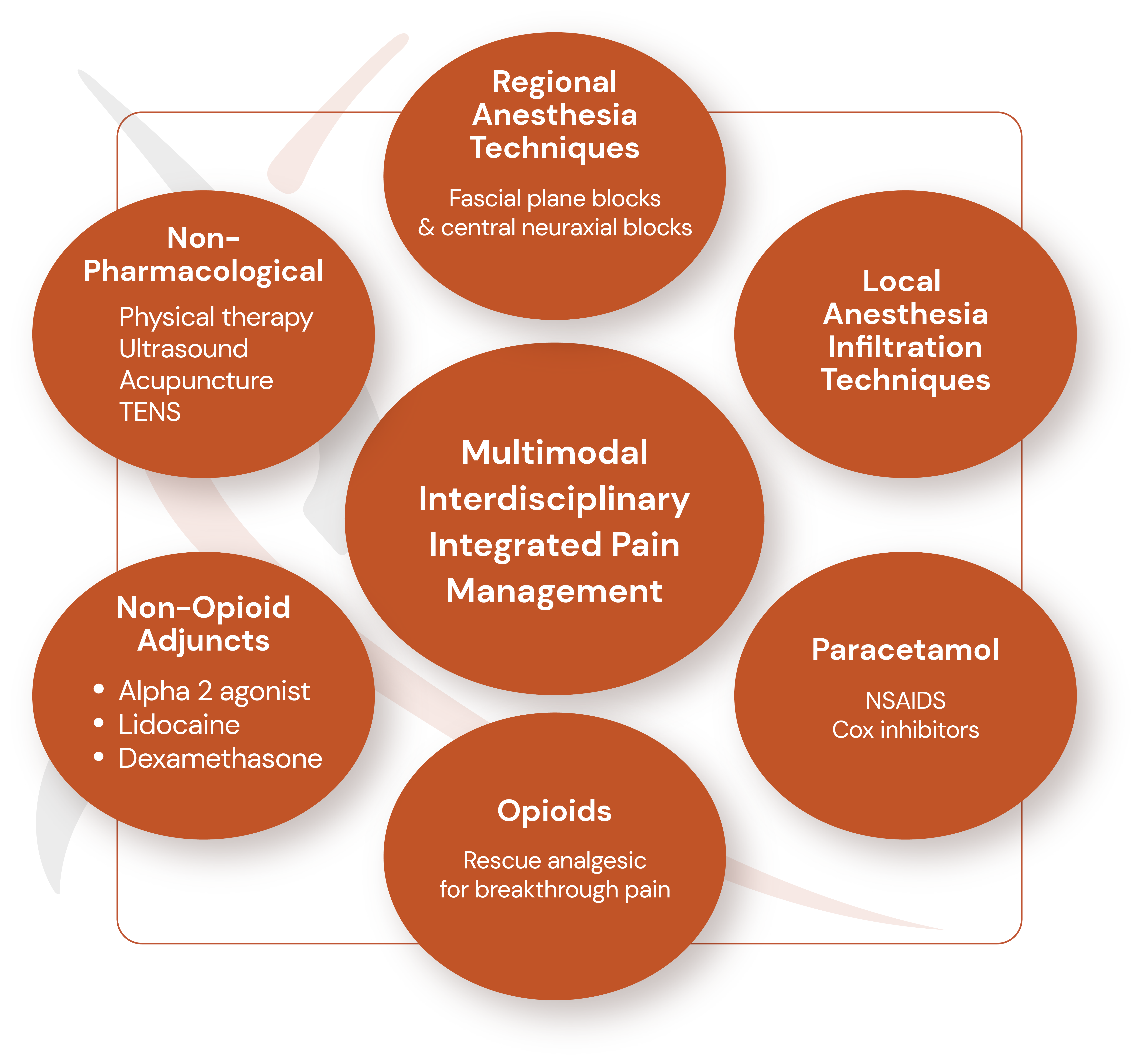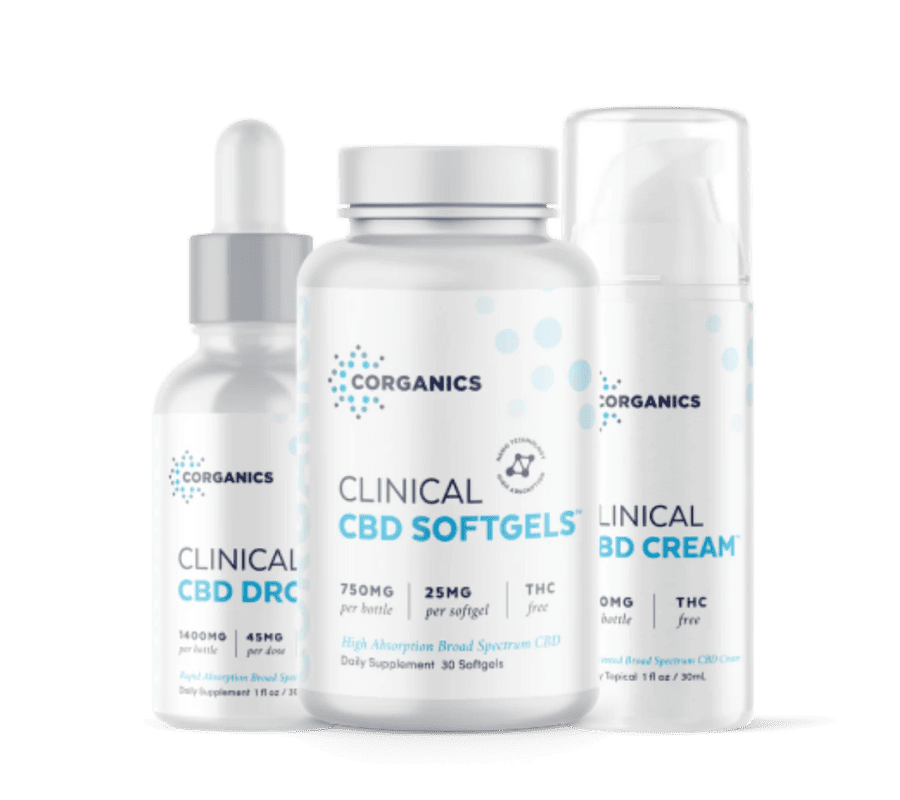Post-Operative Medications
and Multimodal Pain Management Strategy
Post-Operative Medications
and Multimodal Pain Management Strategy
Pain is a signal in your nervous system that something may be wrong. It is an unpleasant feeling, such as a prick, tingle, sting, burn, or ache. Pain may be sharp or dull. It may come and go, or it may be constant.
We use a multimodal pain management strategy. This involves utilizing several techniques and medications, described below, to target a variety of pain pathways in the body. By addressing your pain through several different pathways simultaneously, we can significantly reduce the pain and discomfort that you experience after hip or knee surgery.
Pre-Operative
The two pre-operative pain management nerve block methods we use are:
- Adductor Canal Block (Knees) – An anesthesiologist will numb/inhibit the saphenous nerve (this is the nerve providing sensation to the inner parts of the leg/knee) to control pain. This nerve block wears off in 24-48 hours.
- Spinal Block (Hips and Knees) – An anesthesiologist will put numbing medicine into the spinal fluid, not the spine itself, to numb the lower part of the body. This nerve block may help with pain relief long after surgery, though numbness wears off after a few hours.

Intra-Operative
During your surgery, a variety of numbing and pain medications will be injected around the soft tissues of your hip or knee. These medications typically provide excellent pain relief for the first 48-72 hours after surgery. Depending on your medical conditions these may include:
Bupivacaine
(Local Anesthetic)
Numbing Medication
Morphine
(Opioid)
Pain Medication
Ketorolac
(Non-Steroid)
Anti-Inflammatory Drug
Epinephrine
(Vasoconstrictor)
Decreases Bleeding at Operative Site
Triamcinolone
(Steroid)
Decreases Inflammation and Swelling





